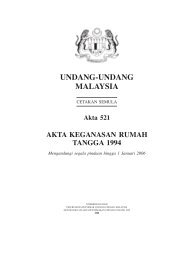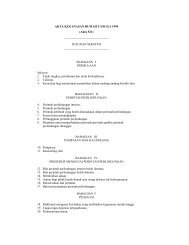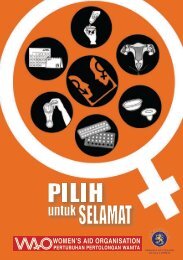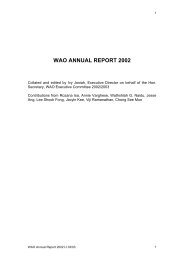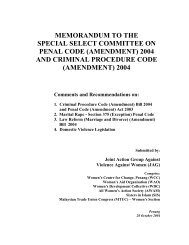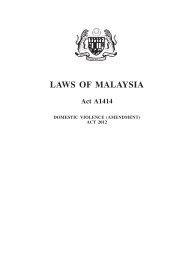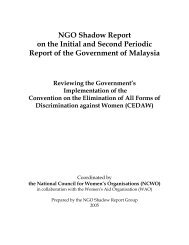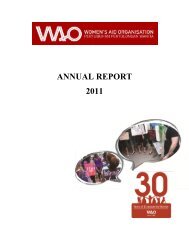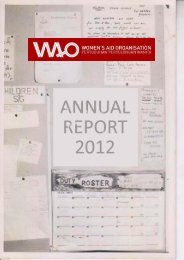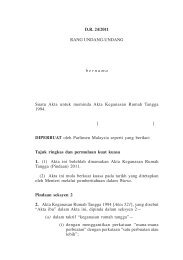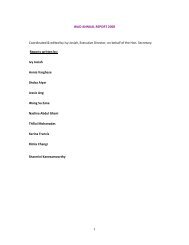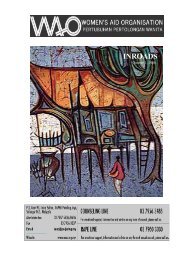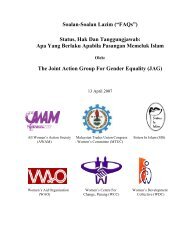WAO ANNUAL REPORT 2009 - Women's Aid Organisation
WAO ANNUAL REPORT 2009 - Women's Aid Organisation
WAO ANNUAL REPORT 2009 - Women's Aid Organisation
You also want an ePaper? Increase the reach of your titles
YUMPU automatically turns print PDFs into web optimized ePapers that Google loves.
Kartika’s decision may be compared to the decisions made by Hindu widows in the past. The practice of<br />
‘sati’ (now outlawed in India) meant that widows were burnt on the pyres of their deceased husbands.<br />
There were arguments that if a widow chose to immolate herself then there should be no interference.<br />
Clearly this is not a practice that should be condoned on the principle of free choice.<br />
The important issue here is the deterioration of human rights standards as applied by the state of Pahang.<br />
If the whipping of a woman takes place under Syariah law, a bad precedent is set in Malaysia – especially<br />
when women are expressly excluded from being whipped under S289 of the Criminal Procedure Code.<br />
If Kartika is whipped, the perception of Malaysia as a moderate Muslim state will be permanently<br />
jeopardised.<br />
We urge the Federal and State Governments to review whipping as a form of punishment as it violates<br />
international human rights principles which regard whipping and other forms of corporal punishment as<br />
cruel, inhuman and degrading treatment.<br />
In Kartika's case, we are especially concerned that general principles of sentencing were not applied: she<br />
was a first-time offender, she showed remorse and pleaded guilty, and there was no violence in the<br />
commission of the offence. Her sentences were completely disproportionate to the offence committed.<br />
We further urge the Federal and State Governments to conduct a comprehensive review of all laws<br />
pertaining to Syariah criminal offences, with a view to repeal such laws. In 1997 and 2005, SIS submitted<br />
memorandums to the Government on Syariah criminal offences, raising several issues of concern including<br />
the fact that several provisions in the laws have no basis in Islamic legal theory and practice, conflict with<br />
the Federal Constitution and conflict or overlap with the Penal Code and other federal laws.<br />
Finally, we remind the relevant authorities that justice must be tempered with compassion; and that justice<br />
must not only be done, but must be seen to be done so that Malaysians can be confident of the processes<br />
in the Syariah courts.<br />
55




